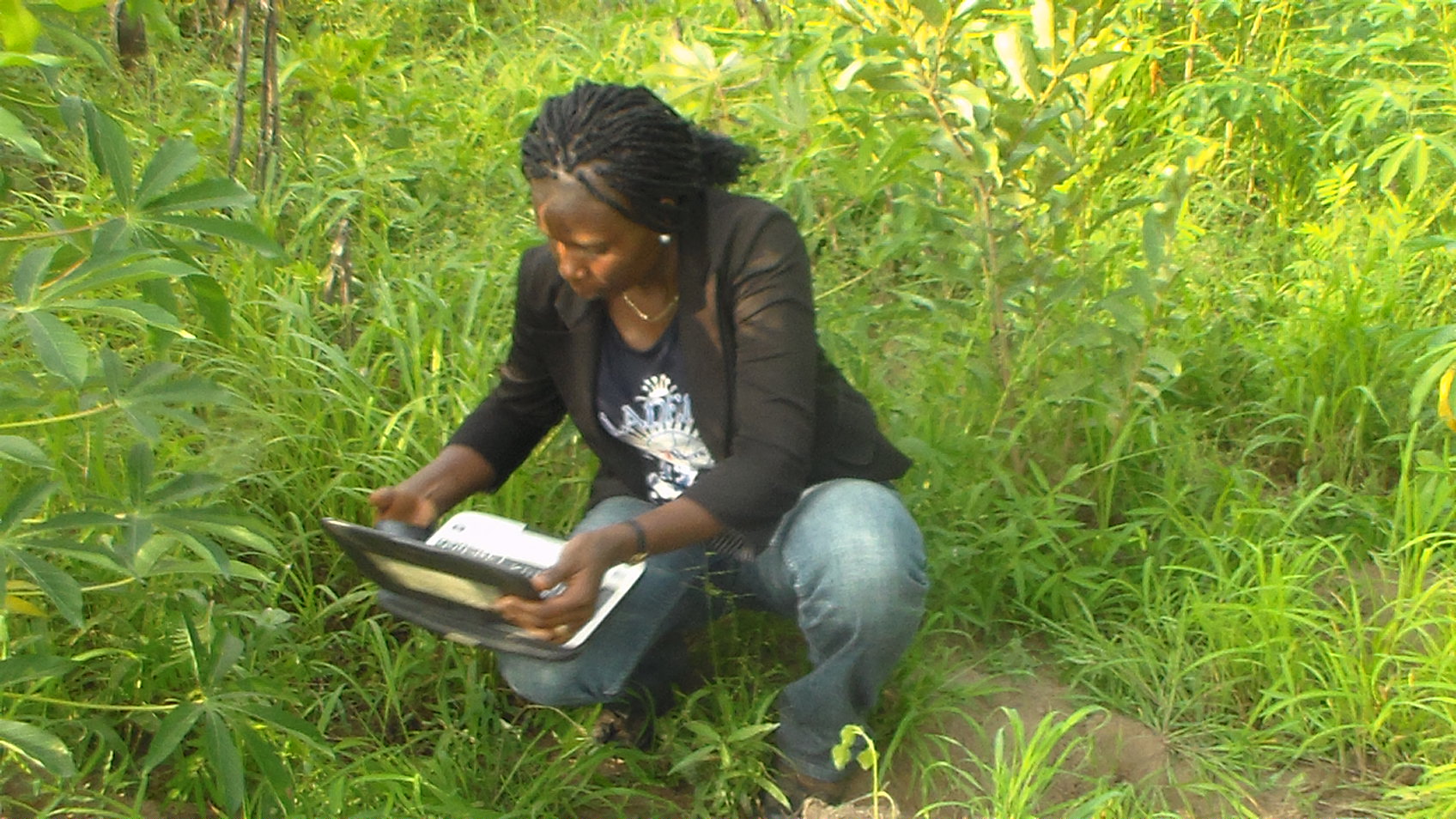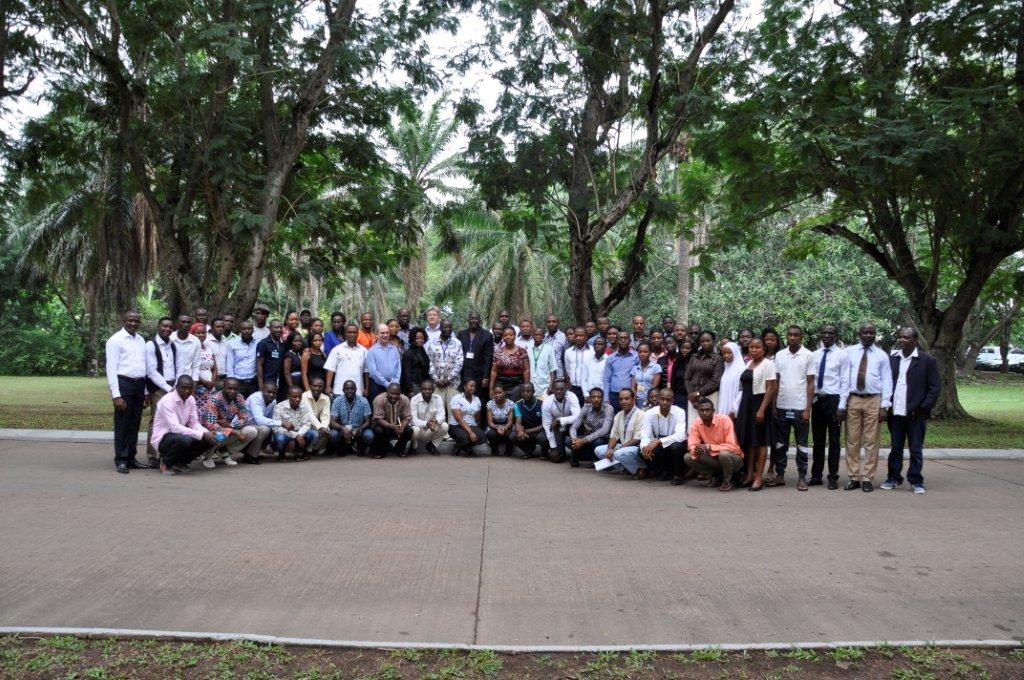The IITA Cassava Monitoring Survey (CMS) project, designed to study the adoption rate and diffusion patterns of improved cassava varieties in Nigeria, successfully conducted a training workshop in Ibadan on 20-22 May for the 60 enumerators on contract to collect data for the project.
The training covered aspects of the use of geographic information system and related tools in the collection of data to facilitate adoption mapping, collection of cassava samples for DNA-based varietal identification using single nucleotide polymorphism (SNP) markers to facilitate the identification of the varieties developed and released by IITA and the National Root Crops Research Institute (NRCRI), as well as a gender-differentiated survey of end use.
To provide an accurate description and understanding of these diffusion patterns of improved cassava cultivars, those who produce 80% of Nigeria’s cassava–the farm families–will be directly involved in the survey. Specifically, the enumerators are expected to elicit the needed data from 2,500 cassava-growing households in 16 states.
Dr Victor Manyong, Director, IITA-Social Science and CMS Project Director, welcomed the enumerators to the training and highlighted the importance of the assignment and the high standard required in data collection. He emphasized that the development community at large was watching and waiting to see the results coming from this study because it was the first of its kind. Dr Manyong also stressed the importance of team work for success and enjoined participants to start building the team spirit right from the workshop.
In support, Dr Godwin Asumugha, Director of Extension and Farming Systems Research, NRCRI, said that in addition to providing direct and comprehensive evidence to address research questions on cassava adoption, the study would produce replicable tools and methods for measuring variety adoption.
“The outputs of this study are of great interest to the development partners who could use the results to improve interventions and direct strategies,” he said. Dr Asumugha said that the study was the first of such size and scale to be conducted on cassava adoption; before this, adoption studies had been piecemeal, focusing on small communities and local government areas.
A detailed overview of the research approach of the CMS Project was given by Dr Tahirou Abdoulaye, CMS Project Manager. “The objectives are to assess the adoption of improved cultivars developed over the years by IITA and NRCRI in Nigeria and to investigate the drivers of adoption for these varieties,” he said.
Dr Abdoulaye said that one of the key expected outcomes from the monitoring survey was better decision-making in cassava breeding and dissemination activities of IITA and key partners such as NRCRI.
The workshop equipped participants with practical skills on the use of GPS for the collection of data and area measurement and of computer tablets and of Surveybe software for socioeconomic data collection. Training also covered agronomic traits to differentiate the various cassava cultivars on-farm and the methods for collecting and preserving samples for DNA analysis.

Ms Funke Akomalafe, a trainee, practicing how to capture the agronomic characteristics of cassava on the field.
A field visit to three communities around Ijaye village, Oyo State, was arranged to enable training participants to practice everything that they had learned including a pretest of the survey instrument, and to undergo tests on the use of GPS and the method of DNA sample collection. The hands-on exercises provided an opportunity for the workshop organizers to assess the training outcomes. Furthermore, a post-field assessment session allowed the participants to receive feedback on individual and group performances.
Data collection is expected to start in early June 2015 for 60 days in all regions of Nigeria.
IITA has been chosen to lead this important and innovative adoption study based on its expertise and experience with similar work in West Africa. Molecular biologists, breeders, and economists are joining hands in making sure that correct identification of varieties and household characteristics is done to produce an accurate picture of cassava adoption in Nigeria. Dr Ismail Rabbi of the IITA Bioscience Center will coordinate the DNA extraction to confirm varietal identification.
NRCRI, Cornell University USA, Catholic Relief Services, and a host of other international and bilateral partners are also involved in the project’s implementation. Funds from theCGIAR Research Program on Roots, Tubers and Bananas and the Bill & Melinda Gates Foundation will drive this initiative.


No Comments